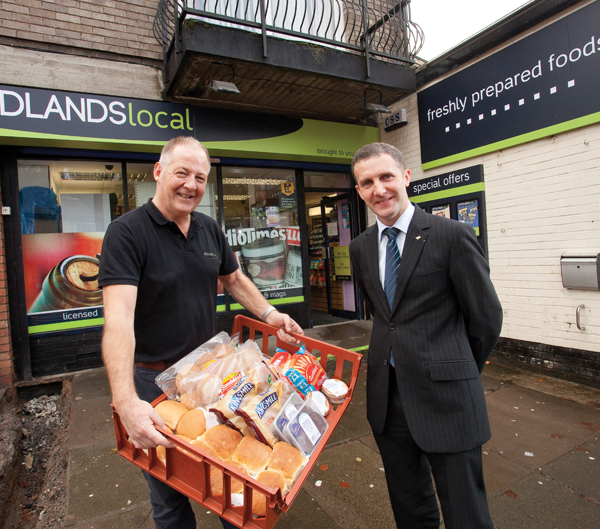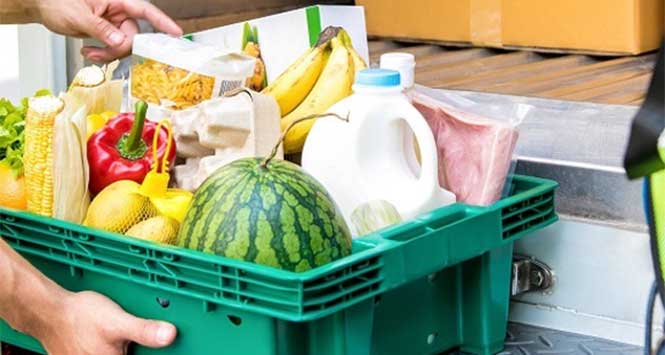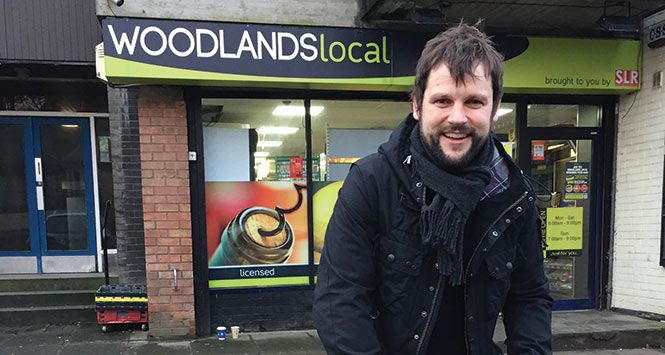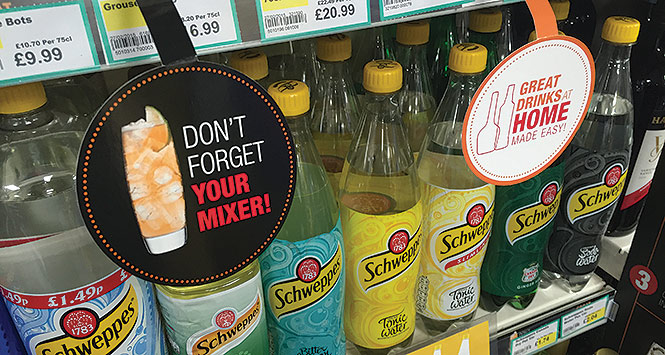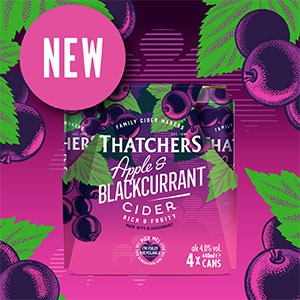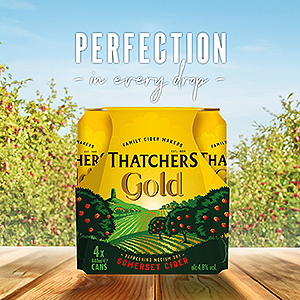Last month Woodlands Local had a visit from our local MSP, Michael Matheson, who also happens to be the Scottish Minister for Public Health. After a tour of the shop, we sat down to discuss the Scottish Government’s public health policy and the role of local retail within it.
By Kevin Scott
Despite the vital role that local retailers play in Scotland, they have been on the sharp end of one too many Government policies in recent years. From the restrictions imposed on the off-trade by various pieces of legislation to the tobacco display ban and the possibility of plain packaging, and a host of other issues, local retailers have it tough. So when we realised that Michael Matheson, the Minister for Public Health, happened to be the MSP in the constituency where SLR’s very own Woodlands Local convenience store is found, we invited him to come along for a visit to see first hand how local retail works.
After a tour of the shop, where he was given an overview of SLR’s plans for Woodlands Local, including the philosophy behind our ground-breaking project, and our own mission to increase the number of healthier options we offer to our growing customer base, we sat down to discuss Government policy on alcohol, tobacco and healthy eating.
SLR: How do you view the convenience sector in general?
MM: Local retailers play a really important part in their local community. They serve a vital purpose, giving locals access to a whole range of local produce. They can be seen as part of the glue of a local community and that’s why we see it as being important to have good relationships with organisations like the SGF, in terms of helping us communicate our public health messages and how we can work in partnership with local retailers to get support in achieving that.
Do you feel local retailers have benefitted from your policies?
Yes. The SGF Healthy Living Programme is a brilliant example. There are now 1,300 shops participating, which is a significant proportion of Scotland’s 5,000+ local retailers. That’s a real indication of the level of interest. We’ve now put additional resource to expanding the range of products which can be part of that programme. I think it will encourage even more retailers to participate. It’s an extremely valuable programme and local retailers have been very enthusiastic in participating, which is something I welcome.
How much of an onus is there on local retailers to take responsibility for what they sell?
We’ve all got a responsibility. Retailers are no different. They’re part of their community and it’s in their interest to sell a range of products that encourage customers to make good choices. That’s why we value the role they play in some of the programmes we undertake.
Do you believe the convenience industry is doing enough?
We’re moving in the right direction. Local retailers have taken on board a whole range of initiatives in a positive way. I recognise that small shops are commercial businesses and that they have to make sure their business is viable but sitting alongside that we have to make sure we tackle very big public health challenges. It’s costing us all, as tax payers, a considerable amount of money each year dealing with the causes of over consumption of alcohol and the damage being caused by tobacco. We have a shared interest to deal with these issues and we therefore must take forward measures that helps us to do that.
Much of this legislation has seen measures imposed on retailers, so what is the Government doing to help?
One recent piece of public legislation to use as an example is the Tobacco Display Ban in larger shops. To address the concerns of smaller shops we gave them an extra two years to prepare for this. We also adjusted the size of the display to accommodate concerns.
The space is still unworkable though, and far smaller than English retailers are allowed. How can you justify that?
Well, down south they’ve taken a different approach. We’ve gone from 120 sqmm to 1,000 sqmm (compared to 1.5 sqm in England). It’s a very big increase. It’s important to balance the integrity of policy initiatives with the practicalities of implementation and we believe we’ve achieved that.
The display ban’s introduction will cause huge upheaval – why do you feel it is necessary?
It’s worth keeping in mind that the direction of travel for a considerable period of time for consecutive Governments has been to reduce smoking. We’re down from around 40% of the population smoking to around 23% so there has been significant progress. A range of measures we’re taking forward centre on young people in particular being attracted to smoking, so the display ban is there to remove the ‘point of transaction’ marketing that could be used by tobacco companies. Demonstrated by the increasing variants in different brands over the years, it is a way in which the tobacco industry markets its products more effectively. The display ban removes that opportunity.
So why the need for plain packaging then?
Standardised packaging takes this a step further by removing wider marketing opportunities that tobacco companies use once the product has been purchased.What we do know from research is that removing that type of marketing is effective in reducing young people taking up smoking in the first place, something that’s key to the tobacco control strategy and moving Scotland towards becoming a smoke free nation by 2024. I respect the right for people to smoke if they choose to but as a Government and as a society we have a responsibility to try to prevent young people from taking up smoking, given the impact it can have on their health. Standardised packaging is a further measure that can help us achieve that objective.
You’ve said that research from Australia backs the move to plain packaging, but the research found an increase in the illicit trade in the country – how can you counter that?
We take illicit tobacco very seriously and Police Scotland are working with partners to reduce its impact. We also introduced the Scottish Tobacco Retailer’s Register which was a way of helping to tighten up the whole area around tobacco sales. The National Audit Office have shown that for a number of years illicit tobacco has dropped very significantly and HMRC are taking forward measures to ensure that’s the continuing direction of progress.
But are plain packets not easier to counterfeit?
A recent report from All Party Parliamentary Group on Primary Care and Public Health at Westminster demonstrated that the main counterfeit measures, which are used by enforcement agencies, are not the design of the packet itself but the on-pack anti-counterfeit measures, such as coding, and holographic mechanisms. With plain packaging that will continue.
The EU Directive could put further restrictions on tobacco that could harm convenience store sales.Do you back the measures?
We’re supportive of the measures though think more could be done. Plain packs allow the health warning to be more obvious, for example. Research published by University of Stirling demonstrated that the clearer that message, the more impact it will have, particularly with young people. Moving to standardised packaging will help, and the EU regulations will assist in the meantime. We need to make sure we do everything possible, and we believe the next step is standardised packaging.
Minimum Pricing has divided the trade, why do you think it is necessary?
We need to continue to take forward measures to help us deal with the afore-mentioned issues. I know there are mixed views of minimum pricing with part of the industry in favour and part having doubts about its implications, but when you consider the impact of alcohol on our society as a whole, it would be irresponsible for us to ignore that and I think local retailers have an important part to play in taking forward the measures that will help us address these issues.
The Licensing Act (Scotland) 2005 overhauled the licensing system, but is flawed, with the hindrance of minor variations or retailers unable to promote food next to alcohol. Does the legislation work?
Clearly there’s an issue around how local licensing boards handle some of these issues. I’m aware some boards are more efficient than others. I think more work could still be done as to how the boards operate. As a Government we’ve been doing that in the form of guidance and support. Even in Falkirk itself, I’ve discovered from speaking to retailers that there is always scope for further improvement.
So will this be addressed in the forthcoming Licensing Bill?
We won’t be bringing in wholesale changes in any way. My colleagues in Justice have identified a couple of loopholes where there could be amendments made, for example there’s a loophole around proxy purchasing. The legislation intends to close that. The new Bill is about tweaking, but there needs to be a range of consistency over how we apply laws and have a level playing field across shops of all sizes.
While the Government hasn’t yet legislated on confectionery, you plan to ‘invite’ retailers to remove confectionery from tillpoints – aren’t we veering too close to state-controlled retail?
We all need to recognise that we’ve all got a part to play in tackling the big public health measures that I’ve already mentioned. Healthy lifestyle choices are really important and that is why we have measures which are necessary to deal with the growing problem of obesity in our society. Traditionally many people saw it as a lack of exercise, but it’s recognised that it’s also about the lifestyle choices that people are making and the food they are eating. It’s also an issue which has brought together the UK and Scottish Governments as the Secretary of State for Health Jeremy Hunt has called on retailers to take measures. We’re looking at what retailers can do to address these measures and one thing is looking at their tillpoint areas and seeing if [removing confectionery] would reduce impulse purchasing.
If they don’t they won’t be eligible for Healthy Living Awards, no matter how good their store is – isn’t that too harsh?
I’ve been encouraged that the SGF has agreed that in hospital-based shops confectionery should be removed from tills. I think having agreed that it’s important in hospitals we should look at where we can take that further within shops in the local community. I’m keen to work with the trade at what measures we can take forward, but even at that, shops can still participate in the scheme and they can still get award levels that show they are taking forward a range of healthy living measures, but we’ve got to recognise that taking that extra step and removing confectionery from their tillpoint altogether is recoginsed as part of the award process.That’s why the support we’ve had from SGF is really helpful.
As part of the same voluntary proposals, there is a desire to see a 4% drop in sugar content of soft drinks, and 10% reduction in saturated fats in some categories. How is work with suppliers going?
We’re almost at the end of a consultation on reformulation. We’ve had good experience with suppliers in Scotland. When we were looking round Woodlands Local earlier I saw Patrick’s pies and Patrick’s is a butcher famous for their steak pies. They are engaged in the reformulation programme looking at how they can reduce salt in their products. They found that very helpful. Another major supplier in my constituency is Malcolm Allan, who again have been involved in the programme. We’re now looking at what measures we can take forward – there were over 120 submissions and once we’ve considered them we’ll look at how we take it forward, but we’re keen to work in partnership with retailers and suppliers.
Finally, this is a boom time for Scottish produce – how is the Government ensuring this continues to grow?
Malcolm Allan is a great example. They’re right up there now in terms of their brand identity. The horsemeat scandal has also got people thinking a lot about their food. Scottish produce has got a great reputation; the value of exports is growing considerably. We’re also creating the new body which will succeed FSA Scotland. Food Standards Scotland will come into play in 2015 and a key part of its role will be how it can protect and promote the provenance.


